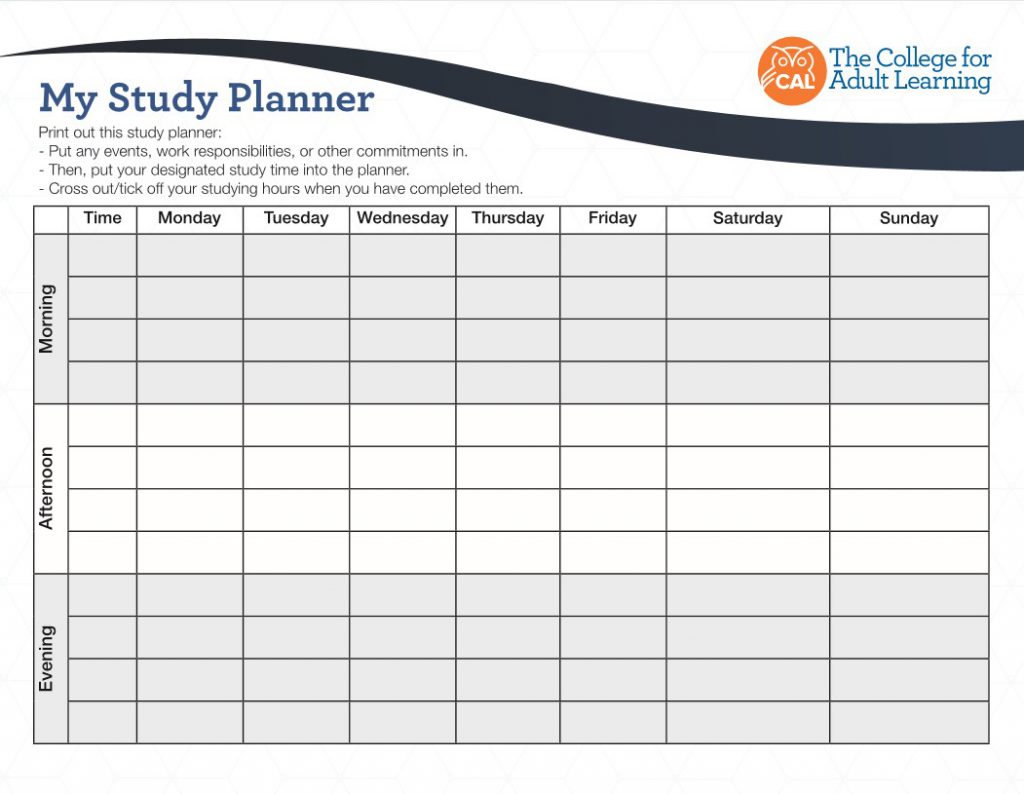
Technology has gifted us with the ability to juggle travel and study with ease. With smart planning and solid guidelines, you can make the most of your time, enjoy your trip and keep up your study commitments. Use these five tips to find a successful balance between travelling and studying with technology.
1. Plan your study around your travels
Whether you’re heading interstate for a week or overseas for a month, the first thing to do is plan a study timetable. Plan to set aside, for example, an hour at the start and end of each day (or longer blocks on longer trips) to get your study done.
- Enter your assignment timetable in a diary or calendar and highlight deadlines.
- Break your study plan down and give yourself an overview of each day’s plan and due dates.
- Digital calendars have many benefits like syncing, but a hardcopy diary is a good backup for when your tech needs to charge.
- Place your study plan in a good spot like your bedside table. This acts as a good visual reminder of your daily study goals.
TIP: Before you go, add your travel times, day trips and tours into your diary, then plan study times around them. Flights are also a good time to study, so download your material on your laptop and have it ready to go.
2. Travel apps can help you study with technology
Many clever apps can make your life smoother on the road and in the air. Download and set these up ahead of your travel dates for easy travelling.
- Airline apps – download the apps for all the airlines you are flying with. These allow fast check-in, virtual boarding passes and alerts you of delays.
- Wallet app – great for managing credit cards, membership cards and quick access to boarding passes too!
- Flight tracking apps – keep track of connecting flights, airport gate changes, how long you might be sitting on the runway, and monitor family travel too. We like App in the Air, FlightView, GateGuru, and Flightradar24.
- Hotel and travel club apps – use these to check in to your hotel and get directions, and to monitor any travel clubs deals.
- Airport apps – essential for info on parking, food, terminal locations, customs info and toilet locations!
- Currency exchange apps – for determining if you’ve got enough cash for a bargain purchase and what the going rate is (no more getting fleeced at the exchange kiosk).
- Getting around – Uber, Taxi, and public transport apps for the cities you visit will make getting from A to Z fast and easy.
- Time zone converter apps – we like World Clock and Time Buddy.
- Seat Guru – provides reviews of seats on each aeroplane, including tips on legroom, draughts and lighting.
- Booking apps – get all the best deals for accommodation, travel, food and entertainment at your fingertips with apps like Skyscanner, Booking.com, TripAdvisor and Lonely Planet.
Paper Planner vs Digital Planner
3. Pack all the tech essentials you’ll need for studying while travelling
Make sure you take ALL the technology you need to study while travelling (particularly if you’re in a place that’s never even heard of a 7/11). Use this checklist:
- All devices – laptop, tablet, smartphone.
- Chargers for each device (every airport sells chargers, so don’t stress if you forget one).
- Universal adaptors with USB ports – put these into your carry-on to use during delays and stopovers. You’ll find USB charge points in food courts and power points in quiet corners of waiting lounges.
- Consider investing in at least one portable charger – they can be worth their weight in gold.
- Remember to download any materials you need on the go – especially for flights. It’s a great ‘just in case’ if there’s no internet coverage where you are going.
- Noise-cancelling headphones for listening to music or pre-downloaded movies – or if you’re worried about anyone chatty sitting beside you.
TIP: Remember, there isn’t Wi-Fi on planes, so to use onboard entertainment, you’ll need headphones with a cord, not wireless headphones.
4. Flexibility is your most important ally
Delayed flights, cancelled trains, and even transport strikes will throw your well-planned schedule. Use that time wisely. Instead of fretting about your plans going awry, make use of free WiFi at airports to study. Then you’ll be able to catch up on sleep or sightseeing once you finally get to your destination.
5. Study smart and take time to relax
It takes discipline to sit down for one or three hours to study when outside your window is an amazing holiday destination. Remember the ‘travelling’ part of studying while travelling – get out there and see the sights! These experiences make a fantastic reward for study effort. Travelling also expands your mind and gives you a chance to meet the locals and keep yourself fresh.
By balancing your studies and travels, you’ll have a holiday you’ll remember for the rest of your life and achieve a qualification that will set you up for life.
Study Planner Template and Task Delegator Template
Plan your study week, and successfully prioritise your tasks with our templates!
Download the PDF below, and select print.
Download the templates





